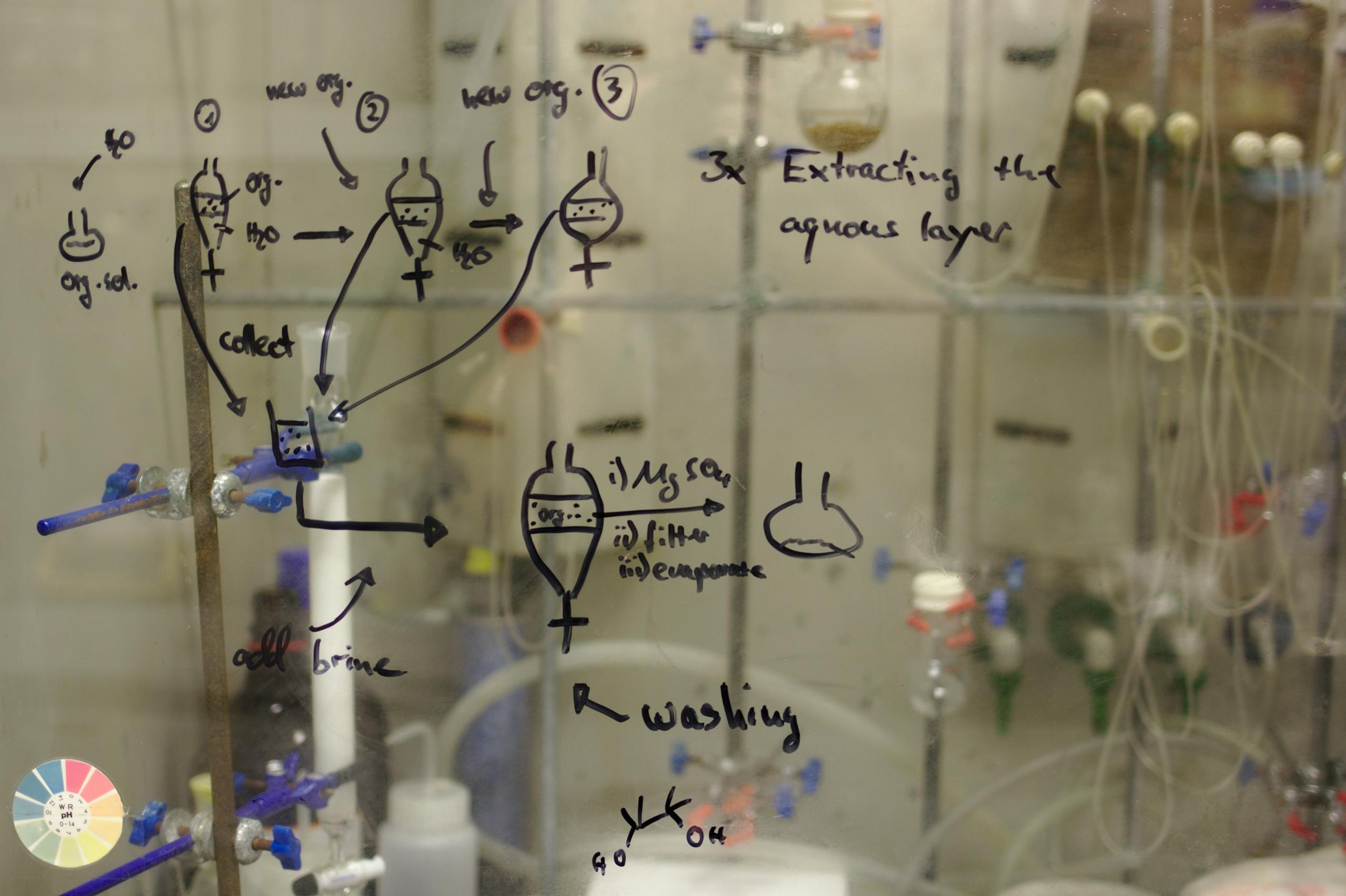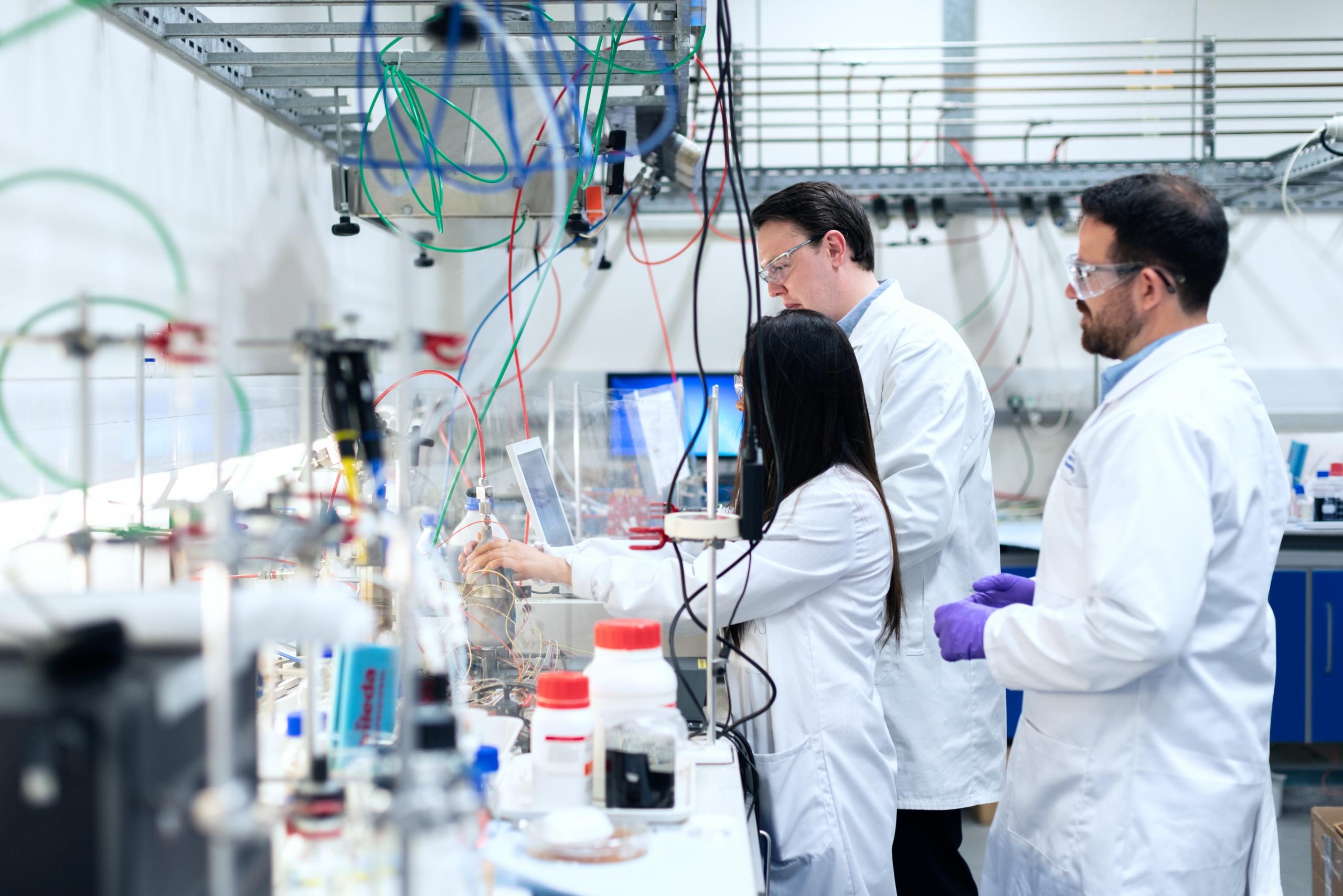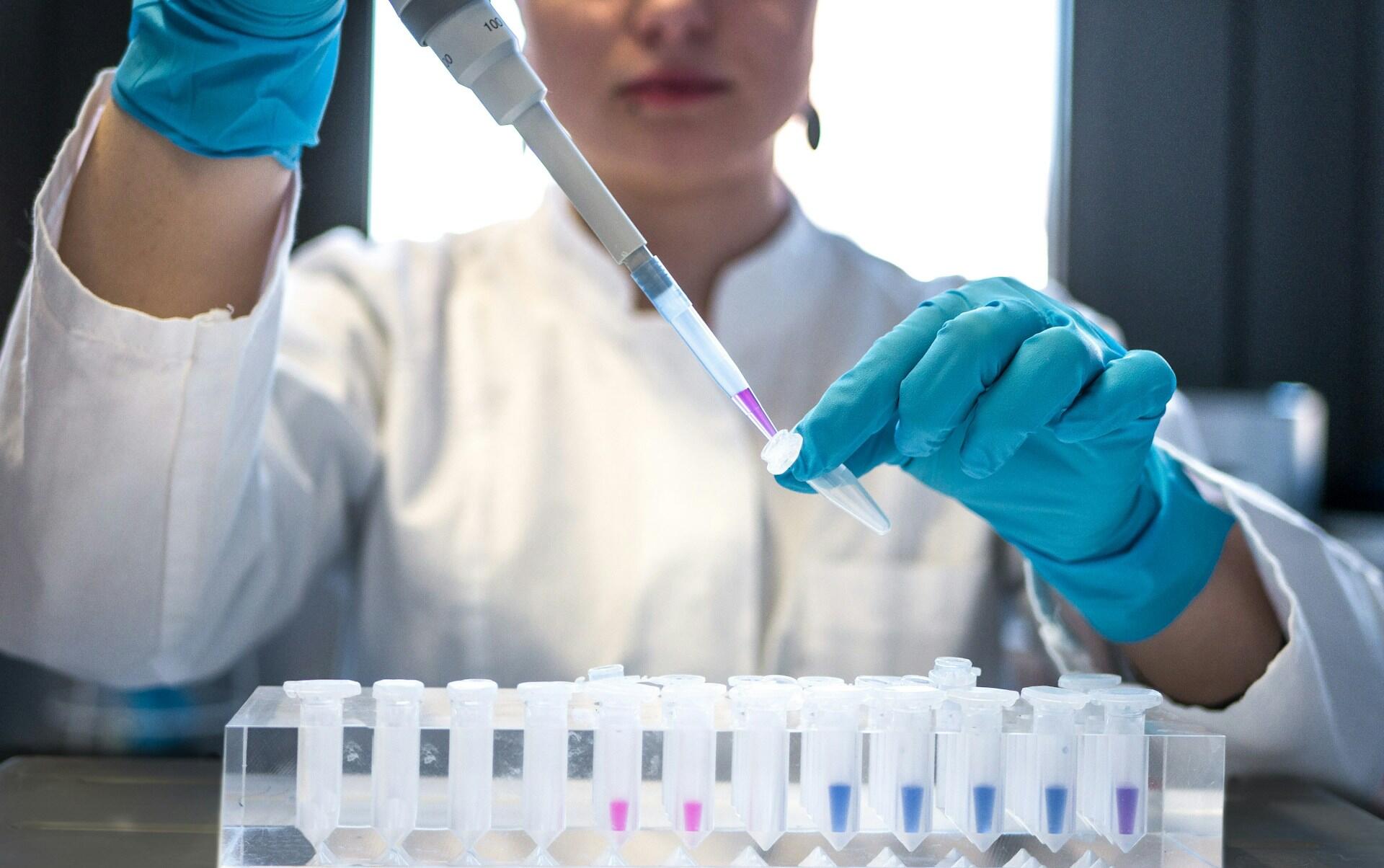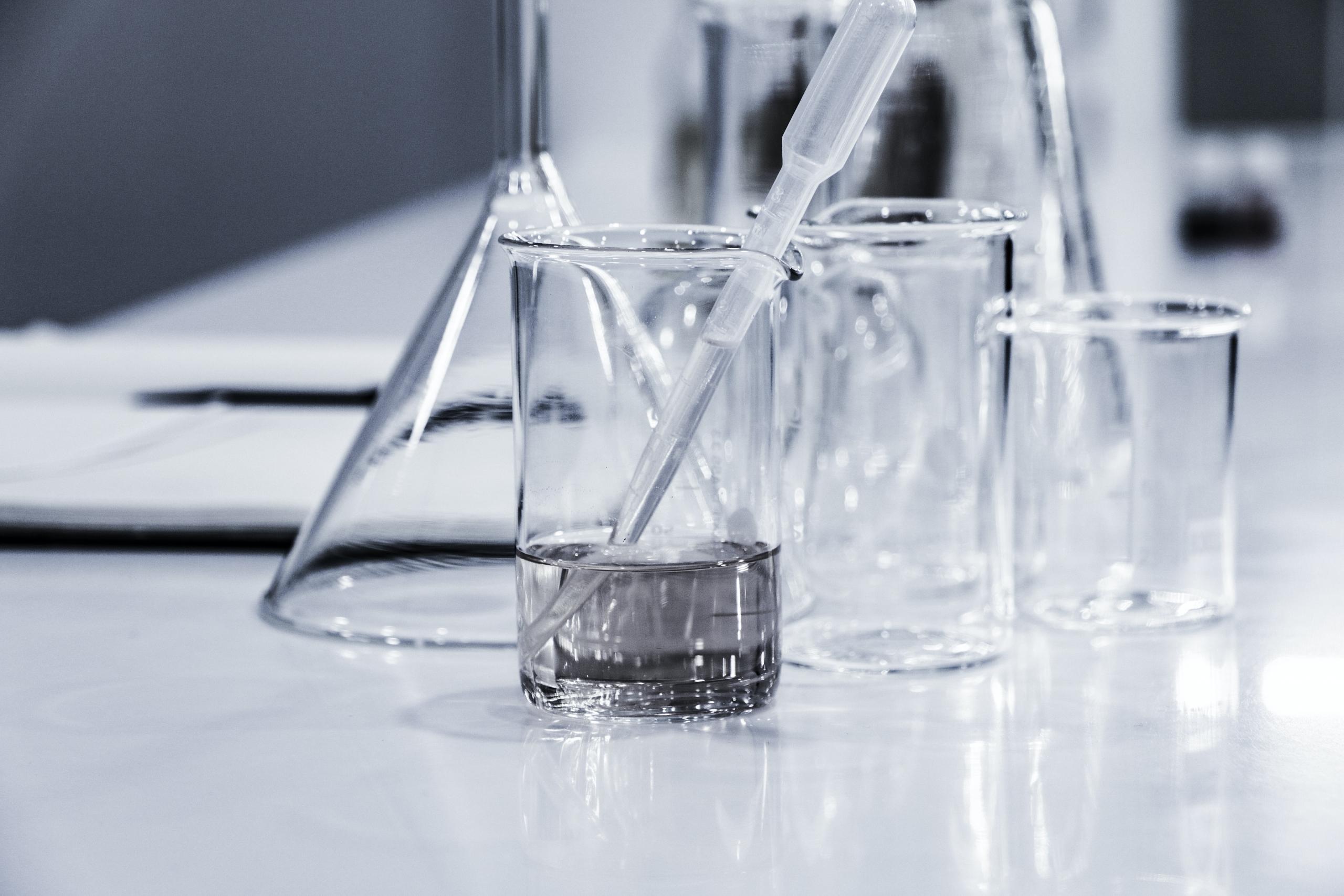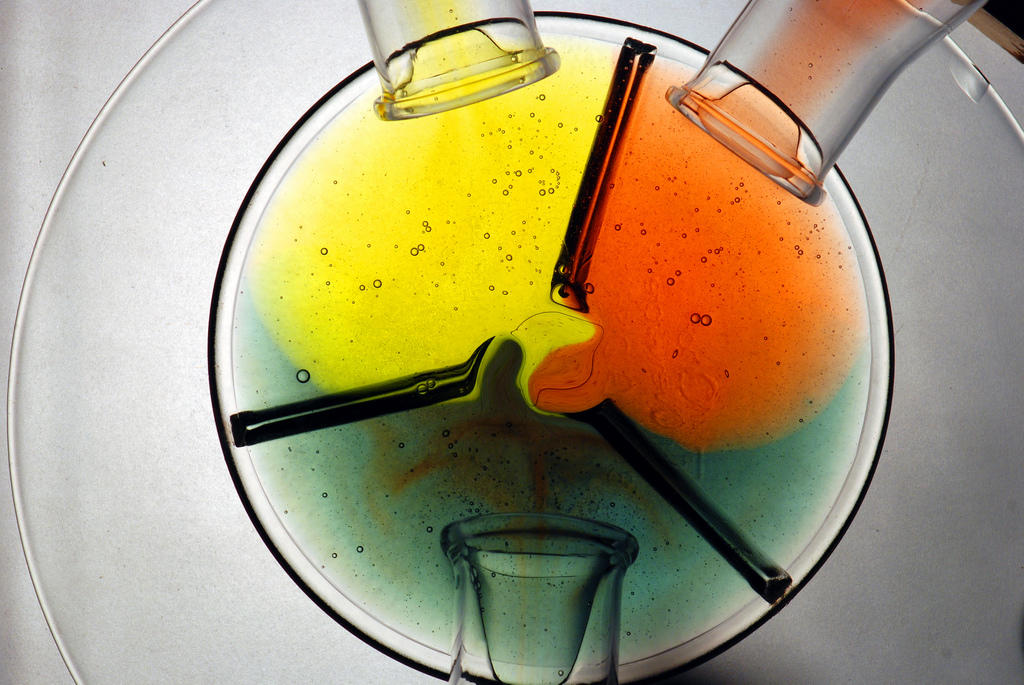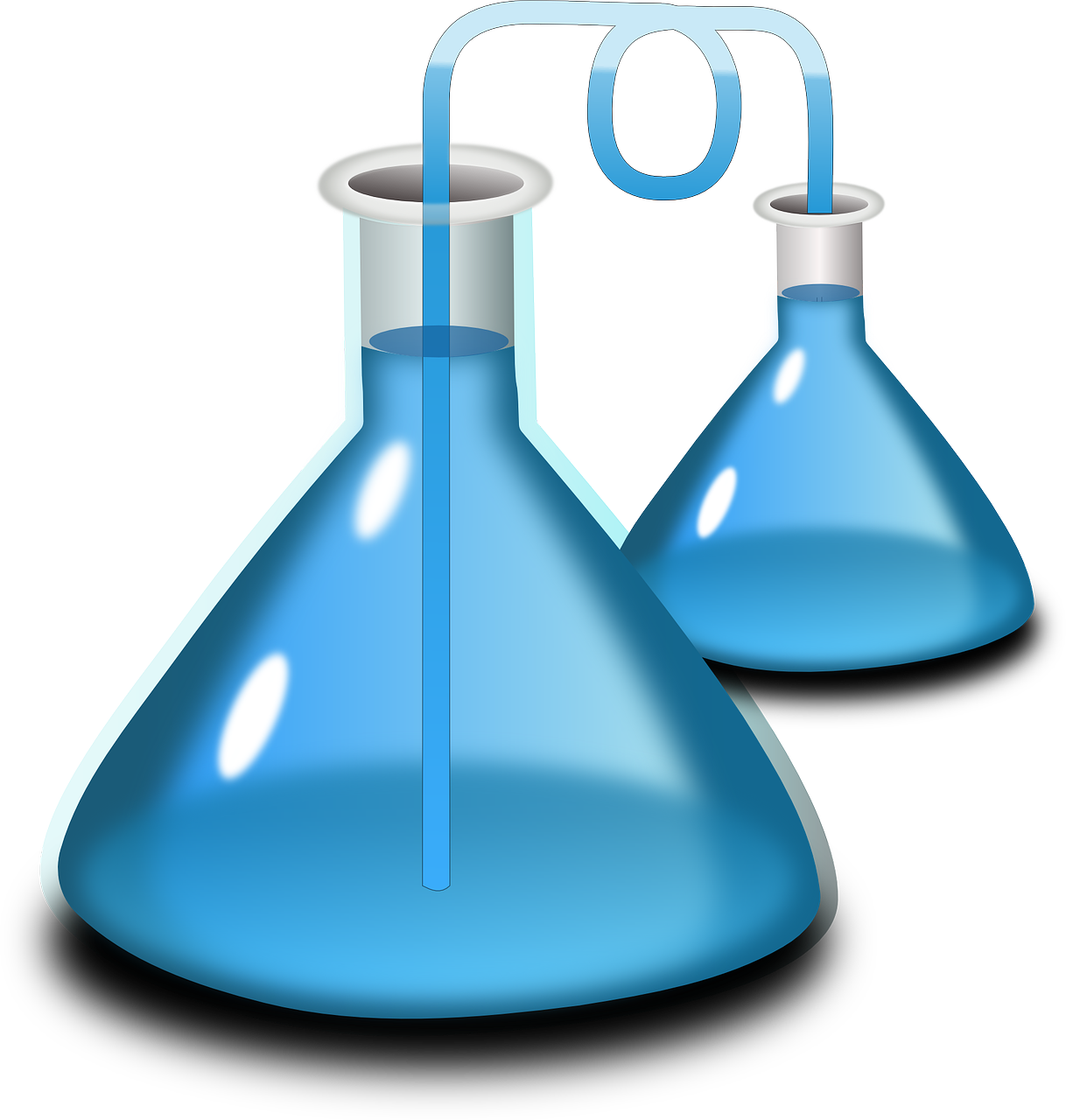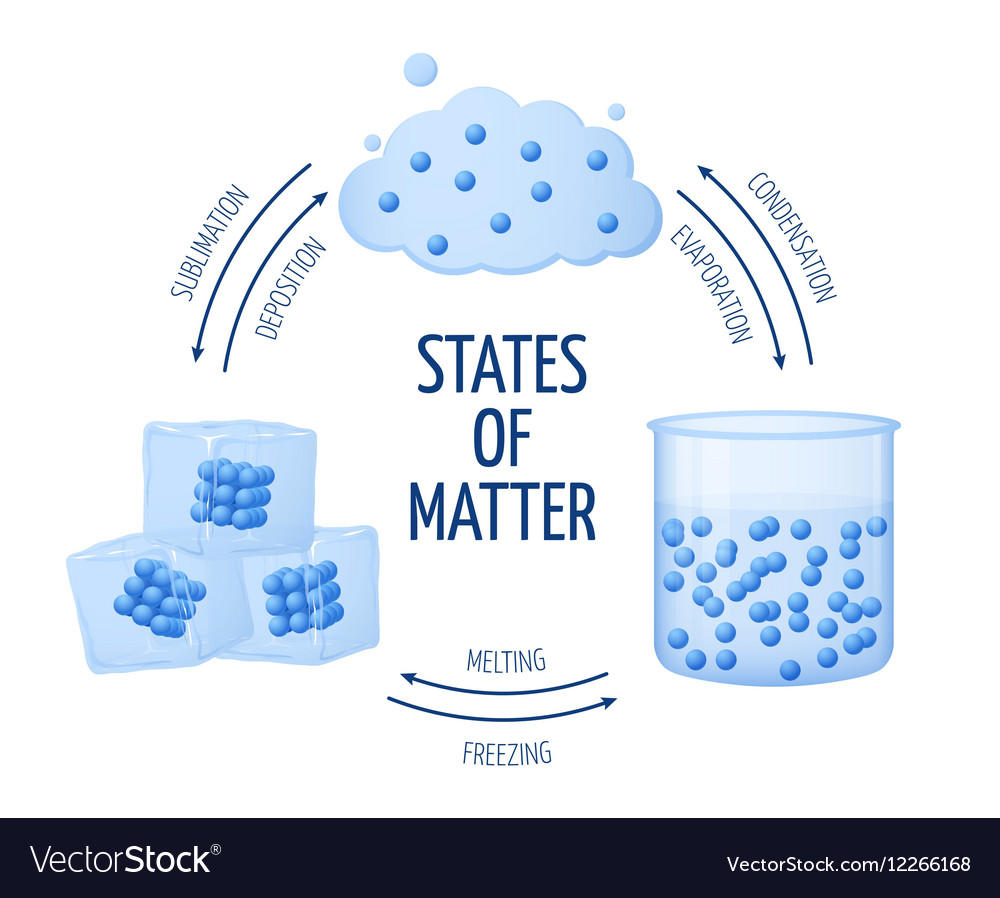"Chemistry is the study of transformation."
After the various years of higher education have been completed at a qualified further education centre for a topic such as chemistry, the next required step is looking for jobs in chemistry.
Unfortunately, even though university graduates may boast a degree in some form of chemistry, the process of finding and keeping employment positions involving chemistry can be an extremely stressful experience. Why's that? Searching job-hunting websites for posts with chemistry is a lengthy experience and then there are the moments of going to many interviews.
However, by having a chemistry careers list out of university, graduates are well-prepared for the jobs that require chemistry out there.
So, without further delay, in today's article, we shall highlight some of the potential chemistry-related careers which are well-paying, engaging, and stable.

What Jobs Are Available in Research Chemistry?
Many individuals with a chemistry degree consider working in the field of research and development. Jobs in this field usually take place in a laboratory setting and require employees to search for and examine findings and attempt to develop them into new theories and products.
Most research chemists have either a Bachelor's, Master's, or PhD from a quality school and may find employment in the following sectors:
- Chemical companies
- Government labs,
- Privately owned and run labs,
- Environmental agencies,
- Food and drink manufacturers,
- Consumer goods manufacturers,
- Pharmaceutical companies.
No matter where chemistry graduates with a specialisation in research decide to encounter work, their jobs that require a chemistry degree are pretty similar and include the following roles:
- Setting up laboratory equipment and conducting tests,
- Recording and analysing data,
- Researching and writing papers and reports,
- Keeping up to date with relevant scientific and technical developments.
The 5 jobs that use chemistry in a research setting will be mainly laboratory-based, either in top further learning centres or in research labs. Examples of companies hiring are Mitsubishi Chemical, Sika Corporation, John Innes Centre, the University of Bath, and the University of Strathclyde. The starting salary of a research chemist graduate in England would be between £18,000 to £25,000. However, the salary increases with a PhD or at a more senior level to £40,000.
If you are looking to become more skilled and successfully work as a research chemist, it is essential to practice your skills in a lab and hire a private tutor to guide you.
What is Pharmaceutical Chemistry?
Since both the terms "pharmaceutical" and "chemistry" are included in the phrase "pharmaceutical chemistry", it's safe to say that both topics are discussed. Medicinal chemistry, as some like to call it, deals with the production, properties, and synthesis of drugs used to treat ailments.
Pharmaceutical chemistry is different from pharmacology which deals directly with medicines and drugs. It's worth stating that pharmaceutical chemistry is related to other biological areas such as biochemistry, molecular biology, and toxicology.
To become a qualified pharmaceutical chemist, a person needs to go through years of schooling, be emotionally and mentally stable, have an affinity for scientific disciplines such as biology and physics, and be ready to learn transferrable skills such as problem-solving, and critical thinking, teamwork, and research abilities.
As for the required education, it is highly recommended that pharmaceutical chemists do all they can to get good grades across all subjects to be admitted to higher learning programs at university in the secondary school years; at university, a BSc or MSc degree is needed to find jobs in the chemistry field.
Pharmaceutical chemistry students usually find graduate chemistry roles at government agencies, biotechnology companies, the education industry, and private research labs for the pharma corps.
The following are a few employment responsibilities that most individuals working in pharmaceutical chemistry will complete:
- Looking for natural and synthetic materials to determine their chemical properties,
- Conduct quantitative analysis to determine how much of one substance should be mixed with another,
- Use measures to provoke changes in the composition of materials,
- Prepare reports based on scientific research and hypothesis' that are formulated.
To successfully study or start work as a pharmaceutical chemist, it's essential to break more prominent, more complex topics into smaller ones, practice skills in the lab, and seek the assistance of others, such as a private instructor.
Find chemistry tutors online here on Superprof.
What Does an Analytical Chemist Do?
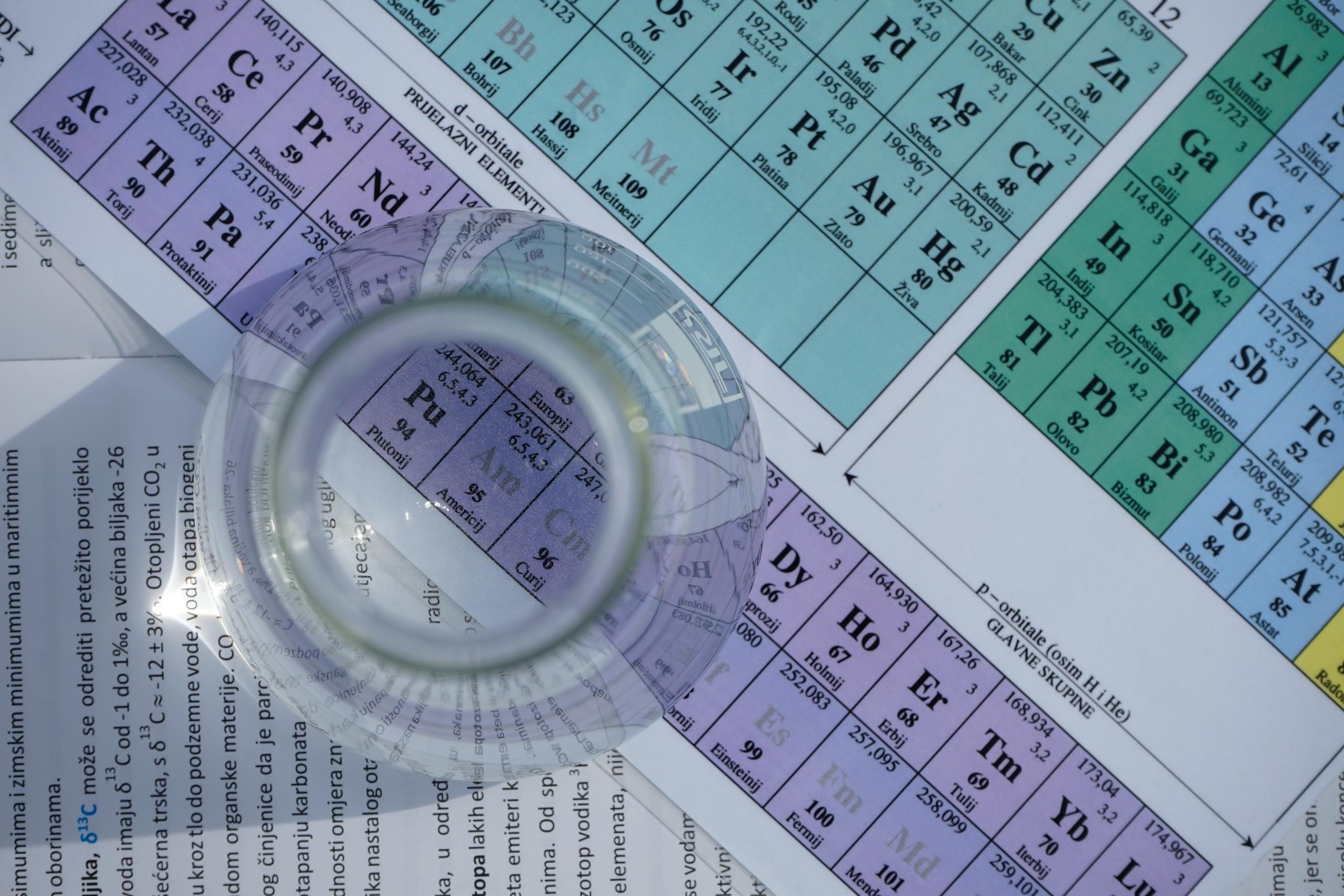
When it comes to chemistry, analytical chemistry is one of the most popularly discussed and analysed subdisciplines. Analytical chemistry can be defined as the science of obtaining, processing, and communicating information about the composition and structure of matter.
A lot of research is required in analytical chemistry, and the following methods are implemented to get to the bottom of the results:
- Separation,
- Identification,
- Quantification.
A vast understanding and knowledge of chemistry and other scientific disciplines at a secondary stage during the GCSE and A-Levels are required to work in the field of precise chemistry. As for accreditations, the process of becoming qualified to work in chemical analysis takes a long time and requires the following steps at different stages of the educational process:
- Good Grades: before the university years, above-average test results are required at GCSE and A-Levels for topics such as chemistry, physics, maths, and biology to become eligible for analytical chemistry courses.
- University Degrees: a BSc in a relevant chemistry programme is the minimum qualification required by most employers who wish to hire an analytical chemist. For some jobs in research, a Master's degree or higher is necessary.
- Experience: by completing internships and accepting entry-level job positions, you receive training from experienced ones that will significantly help you in your chemistry science jobs.
After a degree has been acquired, amateur chemists can start applying for new jobs. But, what jobs can you get with a chemistry degree? The following are some fields where aspiring analytical chemists may find the best jobs in chemistry:
- Food inspection,
- Water purification,
- Medicine,
- Research and development,
- Academia.
Working as an analytical chemist can open up various opportunities. However, some graduates with a chemistry science degree might wonder about the employment tasks they might have. The following list highlights some of the most critical employment responsibilities of investigative chemists:
- Performing qualitative and quantitative analysis,
- Sampling, defining, isolating, concentrating, and preserving different types of samples,
- Performing separations based on differential chemical properties that have been observed,
- Interpreting data in a proper context,
- Communicating results and conclusions to other scientists.
To continuously become a contender for the best-paying chemistry jobs, analytical chemists need to recall that you never stop learning. There are always opportunities to review helpful tips and tricks. Also, since we're in the digital age, students should take advantage of online resources such as videos on YouTube and interactive exercises on websites.
You can search for the most exceptional chemistry tutors near me here.

What is a Chemical Engineer?

A chemical engineer is someone who has a firm grasp of academic disciplines such as chemistry, physics, maths, biology, and economics and has a passion for combining both the fundamentals of chemistry and engineering to produce new products from raw materials.
Chemical engineers work in laboratories and can use a wide range of work tasks such as nanotechnology and nanomaterials to large-scale industrial processes such as converting chemicals, living cells, and alternative energy sources, to complete their research projects and overall job roles.
To become qualified to work as a chemical planner, good grades throughout secondary schooling are mandatory. Also, chemistry job fields may require a BSc, MSc, or PhD degree. But, what are some of the work tasks of chemical engineers? The following list highlights a few job tasks for scientists working in the sector of chemical engineering:
- Use computer models and other processes to test the efficacy of these products and determine their safety for consumers and the environment.
- Researching new methods of manufacturing chemicals,
- Creating the process by which gas or liquid components are separated,
- Gathering estimates of the cost of producing a new item,
- Implementing safety procedures for employees working with potentially hazardous chemicals.
The previously mentioned job tasks for careers in chemistry are general; however, they may slightly or significantly change based on where employed.
Some sectors of employment that hire chemical engineers may include public energy corporations or the private industry. Therefore, a degree in chemical engineering is precious, and most employers across all sectors are glad to have a chemical engineer join their team.
Find chemistry tutor London here on Superprof.
How Can I Get a Job as a Forensic Scientist?
Do you want to help the police solve crimes through your excellent chemistry skills? If so, you should consider a career as a forensic scientist which is an aspect of science that deals with aspects of chemistry to solve criminal and civil crimes that have been committed.
Forensic science is also known as criminalistics. It would be challenging to gather biological evidence and learn how to deal with it correctly without investigative science.
To become a forensic scientist, an interest in all science subjects such as physics, and biology is necessary. Also, throughout secondary school and university, fantastic grades are necessary. Additionally, it's worth mentioning that the grand majority of employers make it a requirement that careers for chemistry require a Bachelor's degree in the sciences or something similar.
Getting experience by asking others and applying for internships is a great way to understand forensic science. The following are some of the most standard employment responsibilities of forensic scientists:
- Gather relevant evidence from the scene of a crime to help prove a case,
- Testify in court about what they observed at the crime scene in question or share their expertise,
- Create reports based on the lab results,
- Find electronic data and analyse it with computers.
Recently graduated forensic scientists find work in law enforcement, private enterprises which deal with pharmaceuticals, and academia.
The most successfully forensic scientists are constantly developing skills, hiring a private tutor for tailored classes, and getting acquainted with forensics and criminology beforehand.
Find chemistry tutor Cardiff here on Superprof.
What Are Chemistry Careers in Waste Management?
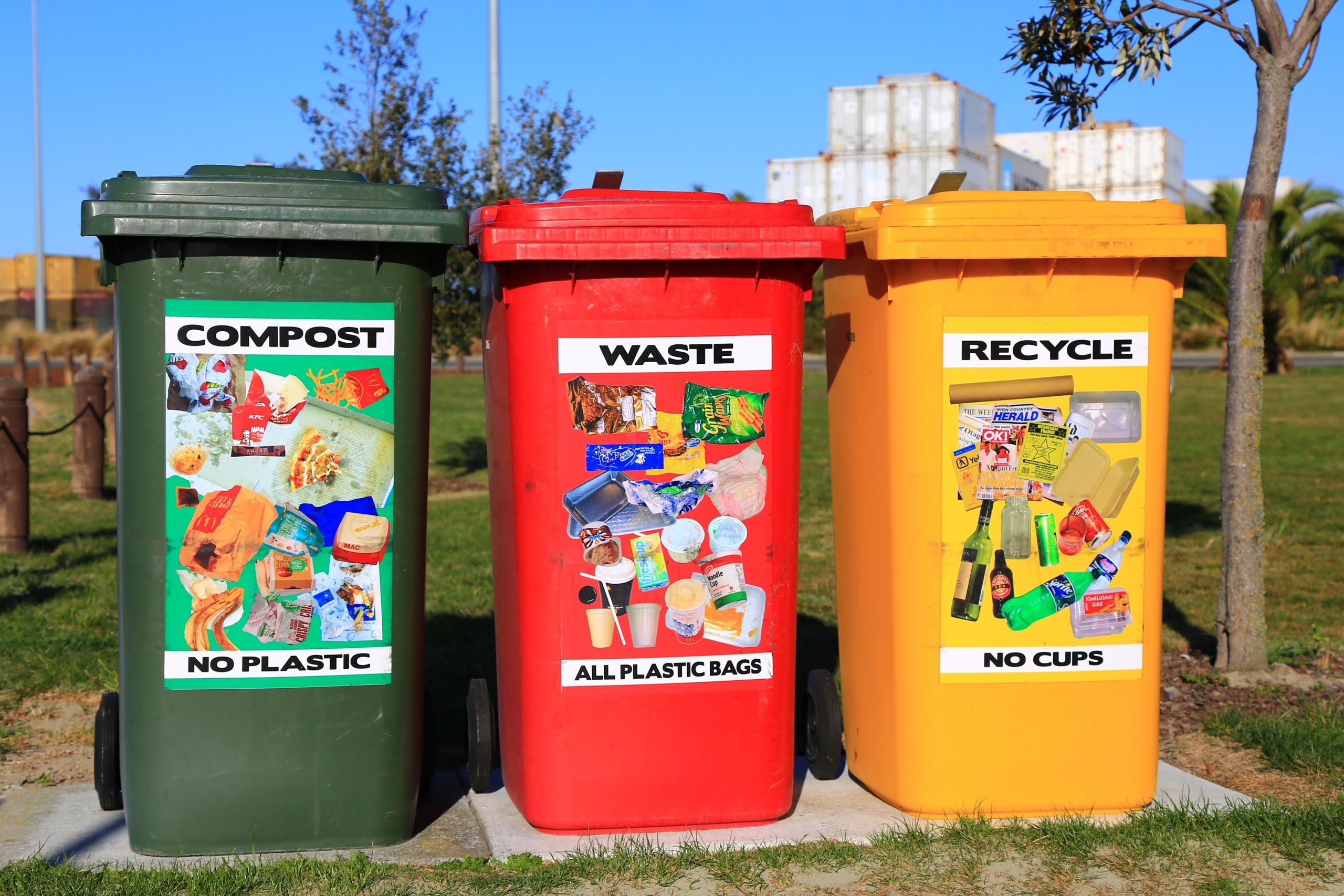
When you hear the term waste management, do you only think about rubbish collectors? If so, you need to educate yourself because waste management is a very diverse discipline with many job opportunities and sectors that employ scientific studies such as chemistry.
Waste management entails everything about rubbish, from the beginning to the end. Some aspects of chemistry are used in waste management to identify hazardous materials and find the most environmentally friendly ways to dispose of the toxins.
While most careers in waste management do not require further learning, it's important to state that some positions such as waste management officer or chemical waste engineer do. The following are a few of the careers available in waste management that might pique your curiosity:
- Solid Waste Engineer,
- Rubbish Collector,
- Project Engineer,
- Waste Management Sales Executive,
- Chemical Waste Management,
- Technical Coordinators,
- Loaders.
Having business skills highly benefits students looking for jobs in waste management. We strongly urge all of your readers to take a look at our article about waste management.
What Does a Geochemist Do?
For those who aren't familiar with the term, geochemistry is a field of study that analyses the earth's chemical composition, including its rocks and minerals. Thus, many say that geochemistry is a combination of two topics: geology and chemistry.
Through a comprehensive study of geochemistry, we can become more familiar with aspects of the natural world such as marine and coastal habitats, air, dust, petroleum systems, soil, and glaciers.
To work in geochemistry, excellent grades in scientific disciplines during secondary school are required, and a Bachelor's degree, or higher, from a qualified university.
The following are a few of the potential jobs that are open and available to those who boast a geochemistry degree:
- Crystallographers,
- Geologists,
- Geophysicists,
- Mineralogists,
- Oceanographers,
- Oceanologists,
- Palaeontologists,
- Petroleum geologists,
- Stratigraphers,
- Volcanologists.
Depending on their employer and the years of experience that they may have in the field, geochemists have the following employment tasks:
- Analysing the age, nature and components of rock, minerals, and soil,
- Conducting sample tests and checks,
- Go out in the field at times to collect site samples,
- Conversion with other professionals in your area, such as geologists, petroleum engineers, and commercial managers,
- Work with databases which track and organise geological and chemic information,
- Write out technical reports and papers for investigative journals,
- Speak publicly about specific areas of geochemistry to others.
If you love chemistry and you thoroughly enjoy geology, geochemistry is the perfect career for you!
In conclusion, it's important to state that there are plenty of potential jobs open for those specialising in chemistry; a fruitful and satisfying career is guaranteed.
Where Can I Find a Chemistry Tutor?
As Carl Jung said, "the meeting of two personalities is like the contact of two chemical substances: if there is any reaction, both are transformed." Having a private teacher has many benefits including working at your pace and depending on your goals and objectives, which is why it is convenient in case you need a quick boost in your studies or a job opportunity in a competitive market.
Whether it is to help you get better at chemistry at the high school level or higher or to help you land your dream job in the field, Superprof has a huge selection of professional tutors offering private lessons in person all over the UK, or online. With over 70,000 tutors with different backgrounds available, of which 3,000 are in London, and with lessons starting at £10 per hour, you are bound to find your perfect chemistry tutor based on your needs and specifications such as speciality, price, reviews, location, and other details that you could check from the teachers' profiles. Why not try it for a year? You don't have anything to lose!
Summarise with AI:

